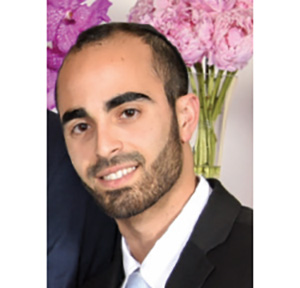
This parsha begins with Moshe Rabbeinu providing an outstanding motivation intended to re-focus our goals and pursuits in life: “See that I place before you today a blessing and a curse; the blessing if you will listen to the commandments…the curse, if you don’t listen to the commandments…(Devarim 11:26-28). Interestingly, the Ibn Ezra comments that in these messages, Moshe Rabbeinu is “speaking to every person individually.” When I saw this Ibn Ezra, I thought, “Well, isn’t that obvious”? Who else would Moshe Rabbeinu be speaking to if not for each person in attendance? What does the Ibn Ezra intend to impart with this comment?
I thought that maybe we can understand this Ibn Ezra through a similar idea I saw brought by Rabbi Dovid Hoffman. In the very beginning of Sefer Devarim, Moshe Rabbeinu starts off with a serious rebuke to the Jewish people, reminding them of the many times they sinned since their exodus from Egypt. The funny thing is that the people who had actually sinned were not the people Moshe was talking to; those people who sinned had already died during the 40 years in the desert! Why was Moshe rebuking their children who did not participate in the matters that Moshe was referring to?
The Chiddushei Harim says an extremely powerful idea that underscores the perspective we are supposed to have about ourselves and the way we are to approach growth in general: These children Moshe was talking to did not commit those sins indeed. However, every person, in every generation, will find that in some way he too has fallen to the misdeeds of people living in that generation—the people of Dor Hamidbar that Moshe was referring to. If one is truly honest with oneself he will find the heartfelt words of Moshe Rabbeinu directed toward himself. Although rebuke is usually specific to the person at hand, Moshe, as the leader of the Jews, had a personal connection with every Jewish soul and was thus able to convey within his words rebuke that applies to each and every Jew in all generations (see Torah Tavlin, Vol. 1, p. 384).
Based on this Chiddushei Harim, I thought that perhaps the Ibn Ezra is pointing out the same idea: Yes, it’s obvious that Moshe is speaking to each person individually. But perhaps what the Ibn Ezra is coming to highlight is the not-so-obvious idea: that Moshe is speaking to each one of us individually, not just those who were present at the time of his motivational “speech.”
Rabbi YY Jacobson famously jokes about the differences between Jews and gentiles in their attitude when they are listening to a speaker. The gentile sits respectfully, nodding his head, providing body language of encouragement and acceptance of the speaker’s words, while the Jew sits with his arms crossed, brow furrowed, and thinking “I already know all of this.” The concept here from the Chiddushei Harim, and perhaps similarly from the Ibn Ezra, is a concept that is supposed to open up our minds and hearts to accept the penetrating words of the Torah, mussar, and those who relate them to us. When we sit in a lecture from someone who speaks the truth, when we sit in front of a Torah book, whether it’s the laws of Jewish living, or practices in ethical conduct and character improvement, we are meant to approach it with a completely deserted mind, with our guard down, and a willingness to accept the truth that is being told to us. Every time we see or hear words of value we are meant to realize that it’s talking to us. It’s not just a piece of information and intellectual stimulation, but rather it’s a moment where we are to look at ourselves deeply and introspect whether we are somehow falling short in that which we are seeing or hearing, and how we may somehow be able to improve in that given area. The Torah is Hashem’s word that is constantly communicating with us, talking to each and every one of us no matter how perfect we think we may be. But it’s on us to take those holy words and let them speak to us, instead of us trying to speak to it.
By Binyamin Benji
Binyamin Benji is a graduate of Yeshivas Rabbeinu Yitzchak Elchanan and Wurzweiler School of Social Work. He currently learns in Lakewood and is the author of the Sephardic Congregation of Paramus’ weekly Torah Talk. He can be reached at benjibenji26@gmail.com.










